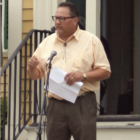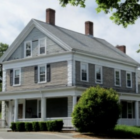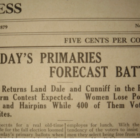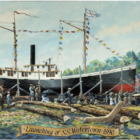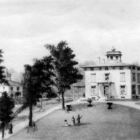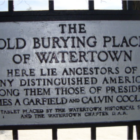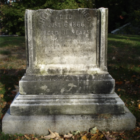Around Town
Our History: Historic July 1776 Event Includes Descendant of Treaty Signer, Upcoming Event
|
Rep. Henry Bear, Maliseet Tribal Representative to the Maine House of Representatives (Photo courtesy of Joyce Kelly)
This article is part of a series on local history provided by the Historical Society of Watertown. It was written by Joyce Kelly, Board member of the Historical Society of Watertown. Joyce writes articles for the newsletter and is the newsletter editor. This was published in our October 2014 newsletter, “The Town Crier.”
The Historical Society once again reenacted the reading of the Declaration of Independence from a Council Chamber window on the 2nd floor of the Edmund Fowle House, first done on July 18, 1776. We also celebrated the Treaty of Watertown, signed on July 19, 1776 in the Council Chamber of the Edmund Fowle House.
